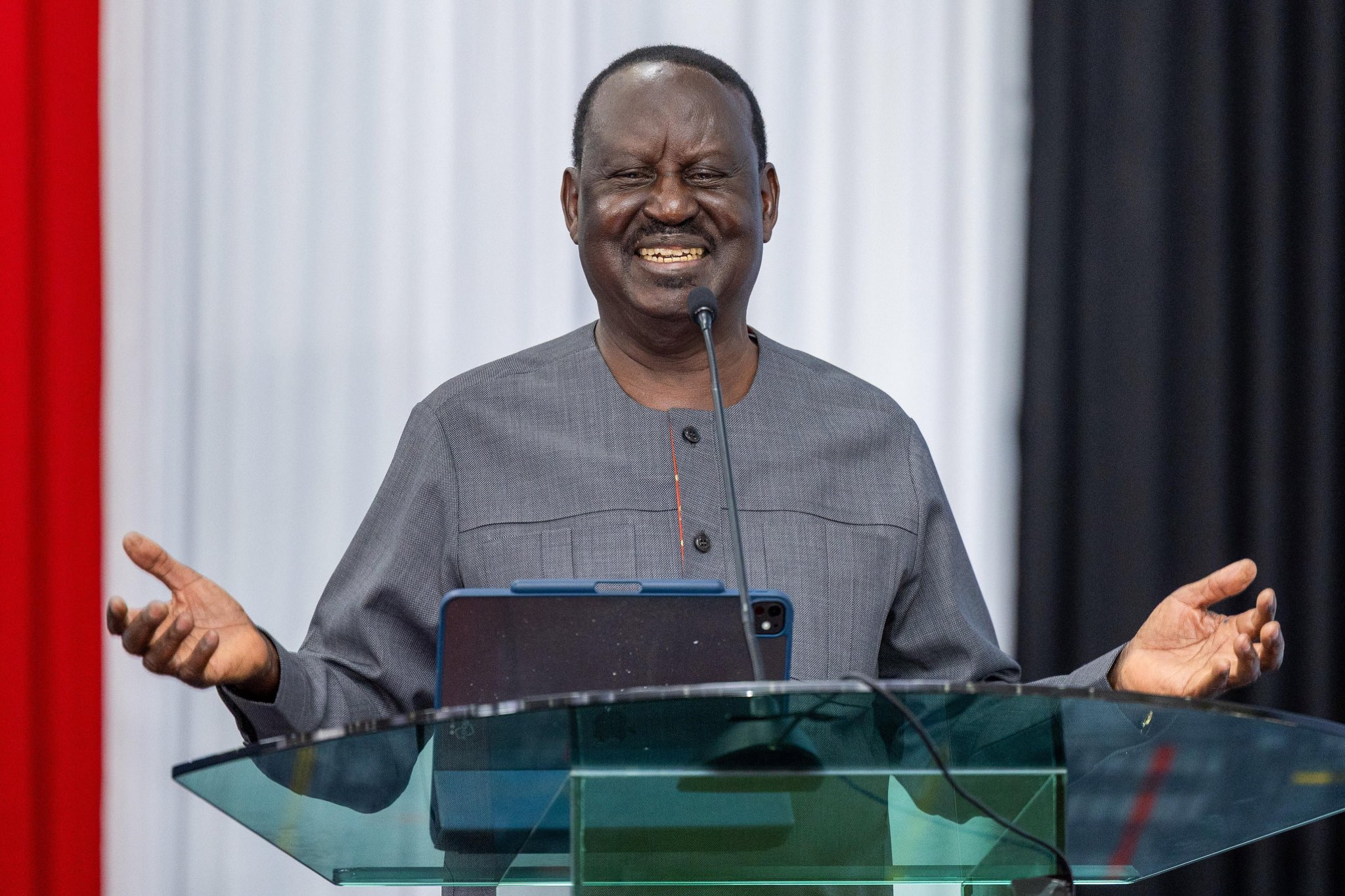
HESBON HANSEN | Raila Did Not Betray Gen Z—Kenyan Voters Betrayed Themselves » Capital News
As Kenya grapples with waves of Gen Z-led discontent, one word has become fashionable: betrayal. Fingers are being pointed—most notably at Raila Odinga—for allegedly abandoning a youth-led movement for change. But this isn’t just misdirected anger. It’s a dangerous distortion of both memory and responsibility.
If we are to speak of betrayal, let’s name it truthfully: a failure of civic duty by the voters themselves.
The real traitors to Kenya’s democratic aspirations are not in Capitol Hill or Bondo—they are in our mirrors. They are the millions of Kenyans who walked into voting booths in 2022, saw Raila Odinga’s name on the ballot, and chose otherwise, despite years of glaring warnings. They are the voters who heard former President Uhuru Kenyatta repeatedly caution against a Kenya Kwanza regime and dismissed him with the arrogance of a viral slogan: hatupangwingwi.
The same Kenyans who gyrated to hatupangwingwi now swing to Kasongo Must Go with reckless abandon, as though their confusion and disengagement should be treated as a national crisis. But democracy is not a social media poll. It’s not undone with a flurry of retweets. It is a system of shared accountability. Leaders must be held to their promises—but so too must voters be held accountable for their choices.
It is therefore disingenuous to accuse Raila Odinga of betraying the youth simply because he insists on upholding the constitutional order. His position—that President William Ruto must serve out his full term and be judged at the ballot in 2027—is not cowardice. It is democratic maturity. Just as demonstrators have a constitutional right to protest, they must also accept that governance operates within a cycle, unless there is indisputable cause for constitutional redress—not emotional overreaction.
Kasongo Must Go is not a democratic plan. It is an emotional outburst—fueled partly by Mount Kenya entitlement and Deputy President Rigathi Gachagua’s nationalisation of his personal frustrations, brought on by his own political missteps, including the ill-advised “shareholder” rhetoric and his lack of statesmanship.
To now demand that Raila lead a populist insurrection is to fundamentally misunderstand the very democratic space Gen Z claims to defend. Raila’s political legacy is built on the painful, often bloody, struggle to expand that space. The fact that Gen Z can now organise, protest, and express themselves owes a debt to decades of resistance by Raila and others like Wanyiri Kihoro, Gitobu Imanyara, the Young Turks, and the famous Seven Bearded Sisters—Abuya Abuya, Onyango Midika, Mwashengu wa Mwachofi, James Orengo, Lawrence Sifuna, Chibule wa Tsuma, and Koigi wa Wamwere—who refused to surrender democracy to authoritarianism.
We must also dismantle another lazy narrative: that certain communities, particularly the Luo, failed to support Raila in 2022. That is false, divisive, and dangerous. The Luo Nation turned out in overwhelming numbers for Azimio, just as they always have. It is naïve to imagine that a community that voted almost to the last man for Mwai Kibaki in 2002 would abandon their own kingpin two decades later.
What many are unwilling to confront is not apathy, but electoral manipulation—from voter registration disparities to turnout inflation and vote tallying inconsistencies. Any honest analyst can trace this through publicly available IEBC data.
We cannot scapegoat communities or leaders for outcomes we collectively produced. Raila Odinga was not elected. William Ruto was. And now, as the full weight of Kenya Kwanza’s policies bears down on citizens, the blame lies not with those who warned us—but with those who ignored the warnings.
Let the youth protest, yes. Dissent is constitutional. The right to demonstrate is protected by law—just as the right to life is a non-derogable right. Even if demonstrations turn chaotic, the regime must be held accountable for its disproportionate and brutal response. The killings and maimings of protestors are inexcusable.
Still, protest must be principled, not petulant. Democracy is not a vending machine that dispenses the ideal leader each time we insert a hashtag. It is a system built on rules, cycles, and mutual accountability. If we want change, we must organise it. If we want better leadership, we must prepare to vote for it. And if we regret our past choices, we must not burn the country—we must own our decisions and do better in 2027.
Kenya’s democratic project is far from perfect. But dismantling it out of frustration is not the answer. We must preserve the institutions that allow us to correct course—and use them responsibly. That means holding leaders accountable, yes—but also acknowledging that voters are not innocent bystanders.
We, the voters, are the architects of the nation’s future. And when we get it wrong, we must be willing to say: we betrayed ourselves.
Only then can we begin the hard work of national redemption—not by pointing fingers at political leaders, but by pointing them inward. Organise. Mobilise. And right your wrongs at the ballot.
As Franklin D. Roosevelt once reminded us:
“Let us never forget that government is ourselves and not an alien power over us. The ultimate rulers of our democracy are not a President and senators and congressmen and government officials, but the voters of this country.”
[Dr. Hesbon Owila is a Media and Political Communications Researcher.]